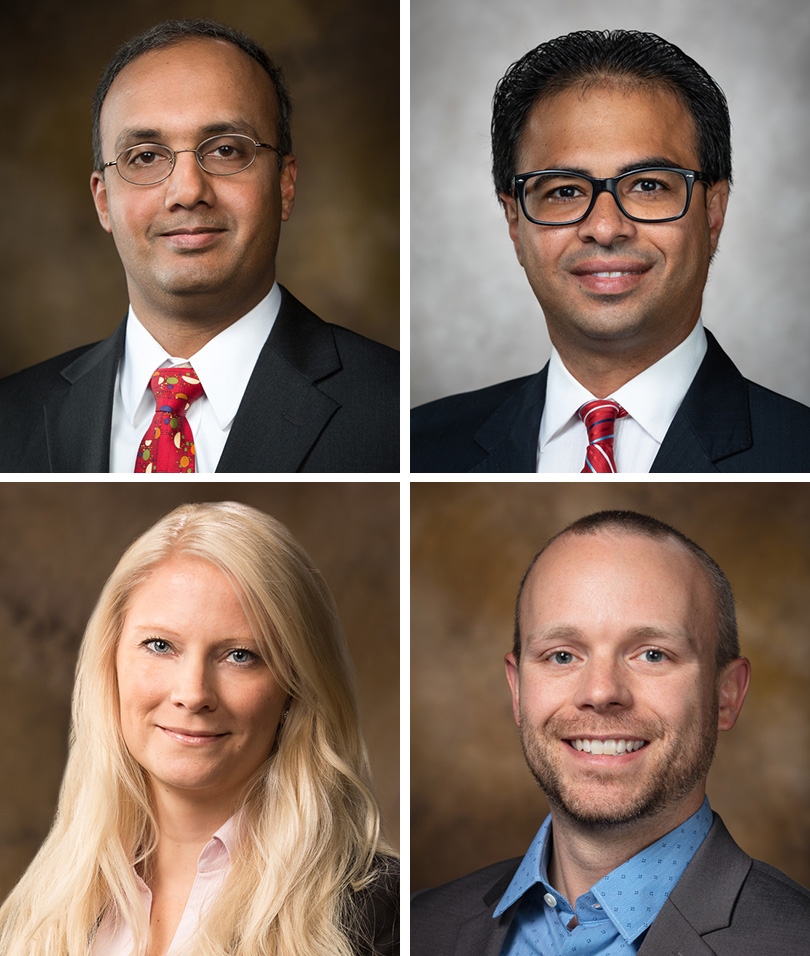
Biomedical engineering faculty have been awarded a five-year award from the National Institutes of Health to transform the department's curriculum by introducing courses on bioengineering design, entrepreneurship and service learning.
Led by Raj Rao, department head and George M. and Boyce W. Billingsley Endowed Chair in Engineering, with support from Mostafa Elsaadany, teaching assistant professor, Timothy Muldoon, associate professor and Hanna Jensen, assistant professor at UAMS, the biomedical engineering department has been awarded $108,000 to develop a suite of courses that go beyond traditional lecture-based teaching and reflect the multifaceted needs of modern biomedical engineers.
"Traditional lecture-based approach of teaching is rapidly becoming obsolete in a world where problems are often multifaceted and cross-disciplinary," Rao said. "This is exceptionally true for biomedical engineering education, where graduates are required to comprehend and apply advanced concepts in engineering, biology and medicine, while simultaneously understanding the importance of commercialization in dissemination of discoveries."
Rao and his colleagues will develop a toolkit of courses in which students will engage with the local healthcare community to identify healthcare gaps and disparities, learn about entrepreneurship in collaboration with the Sam M. Walton College of Business, acquire essential engineering and design skills in their junior year, and inspire the next generation of engineers by mentoring high school pre-engineering students.
"Our aim is to graduate biomedical engineers who are outstanding stewards of their education, serving their communities and translating healthcare innovations for a broader impact," Rao said.
Team-based courses will include a junior-level course on clinical needs finding, with a focus on service-learning, integration of computational and prototyping tools for biomedical engineering design within the curriculum, a senior-level course in entrepreneurial bioengineering, focused on commercialization, technology transfer and start-up potential, and service learning classes in which students mentor local high schoolers.
Topics
Contacts
Nick DeMoss, director of communications
College of Engineering
479-575-5697, ndemoss@uark.edu